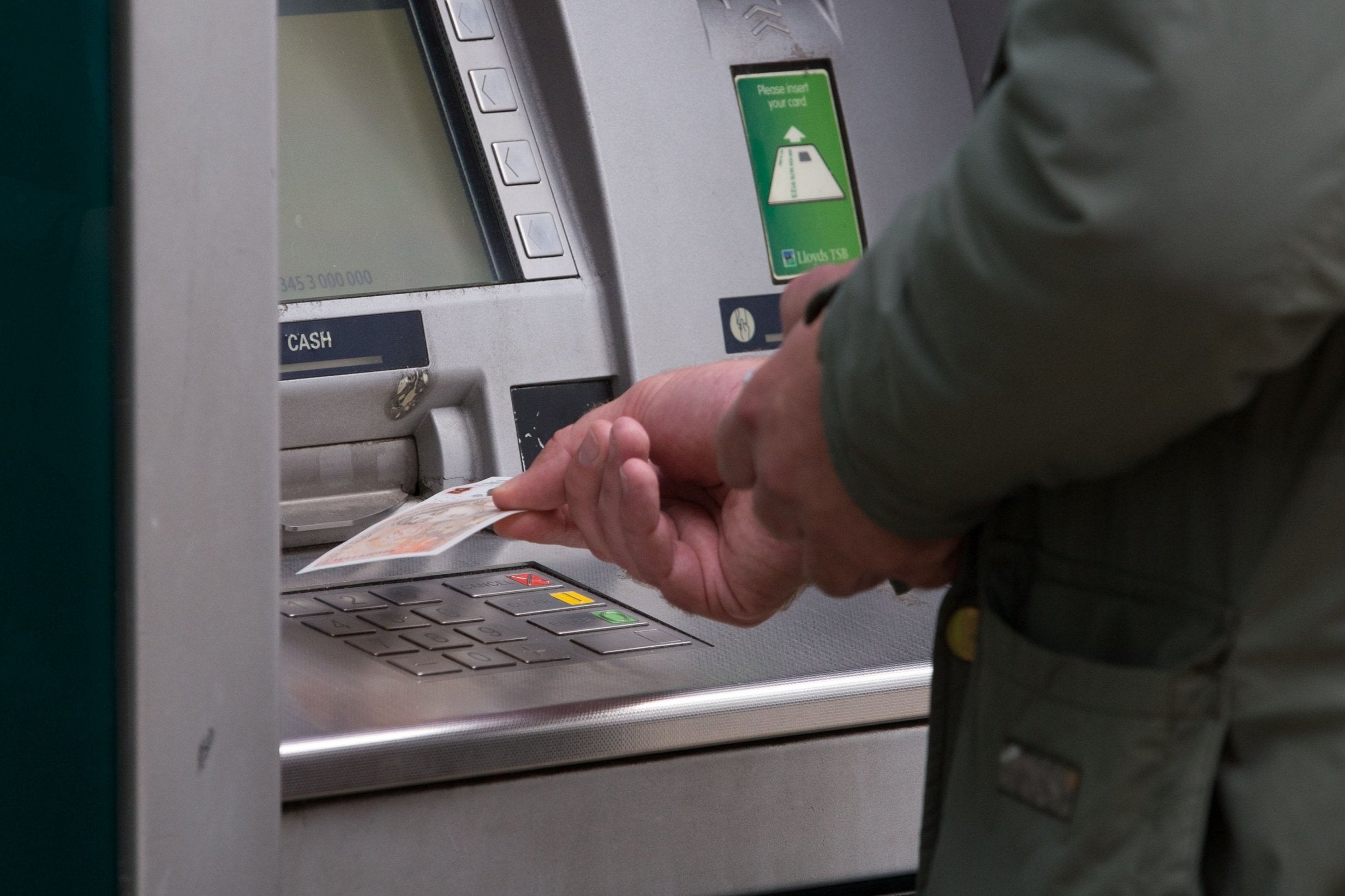Cash machines closing at record rate but that's not the real problem
Some people in remote areas are being left without access to funds. It's a pretty poor return on the public's huge investment into the banking industry

Your support helps us to tell the story
From reproductive rights to climate change to Big Tech, The Independent is on the ground when the story is developing. Whether it's investigating the financials of Elon Musk's pro-Trump PAC or producing our latest documentary, 'The A Word', which shines a light on the American women fighting for reproductive rights, we know how important it is to parse out the facts from the messaging.
At such a critical moment in US history, we need reporters on the ground. Your donation allows us to keep sending journalists to speak to both sides of the story.
The Independent is trusted by Americans across the entire political spectrum. And unlike many other quality news outlets, we choose not to lock Americans out of our reporting and analysis with paywalls. We believe quality journalism should be available to everyone, paid for by those who can afford it.
Your support makes all the difference.Cash machines are closing at a record rate, the latest figures from Link, which oversees the network, reveal
Between the end of January and the start of July 2018, the number of free-to-use ATMs fell from 54,500 to 53,200.
That means the light has been going out on more than 250 a month. Does that matter given the rapid increase in alternative means of paying for things; cards, mobile phones and the like?
Link says the decline is in line with its forecasts after it decided to cut “interchange” fees to those operating ATMs from 25p to 20p.
Its argument for doing so was that the number had boomed as a result of their becoming a honey put for operators. The 36,400 free to use machines in 2007 had been joined by more than 18,000 new ones by the end of 2017. This despite the declining use of cash.
The measure, it was held, should reduce the duplication seen in areas where there's a machine every few metres.
Which? however, voiced fears that the axe was likely to fall on machines in more isolated areas because where there's heavy footfall (such as in town centres) ATMs remain profitable and cheap to maintain even when there are lots of them.
Link countered by offering enhanced fees to those operating ATMs where there are no alternatives nearby.
The sting in the tail of the latest figures is that there have still been 20 closures where that’s the case, where there’s not even, say, a post office in the vicinity.
This could be because of the closure of shops that had played host to one or more of the ATMs. It could be temporary, as a result of refurbishment.
We might live in the digital age, but the only way to for Link, which doesn’t own the machines, to find out for certain is to send someone out to investigate.
The situation is more than a little unsatisfactory. While cash is less popular than it was, lots of people still use it, and need it.
The Payment Systems Regulator says it’s planning to bring forward new requirements on Link that are designed to ensure that people can access the cash they need.
It remains to be seen how they will work.
However, it’s worth noting that bank branches are also closing at a rapid pace, with critics highlighting the impact on those living in out of the way places. The plans of the majority taxpayer owned RBS have generated considerable unhappiness in Scotland, for example.
It’s troubling that all this is happening ten years on from a financial crisis that saw billions of pounds of public money injected into the banking system to keep it afloat. The return on the investment taxpayers were forced to make is looking anything but healthy.
Join our commenting forum
Join thought-provoking conversations, follow other Independent readers and see their replies
Comments